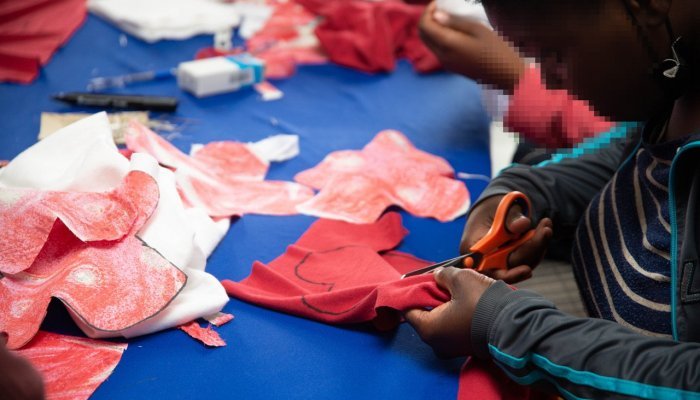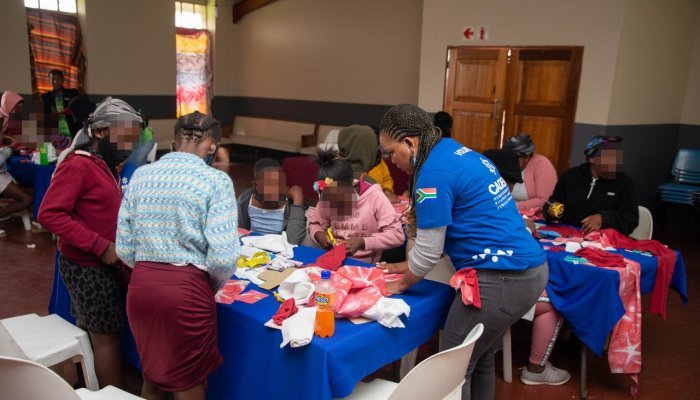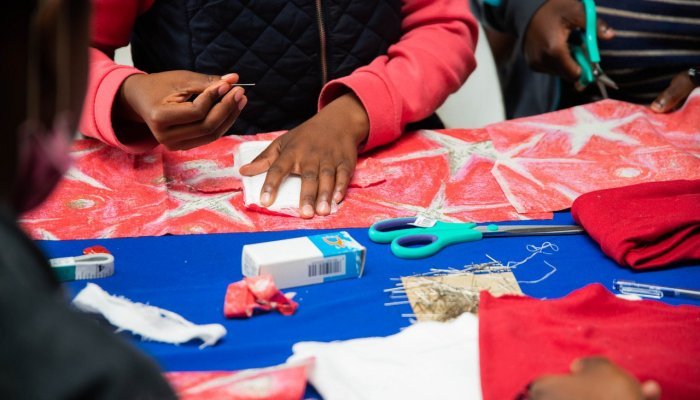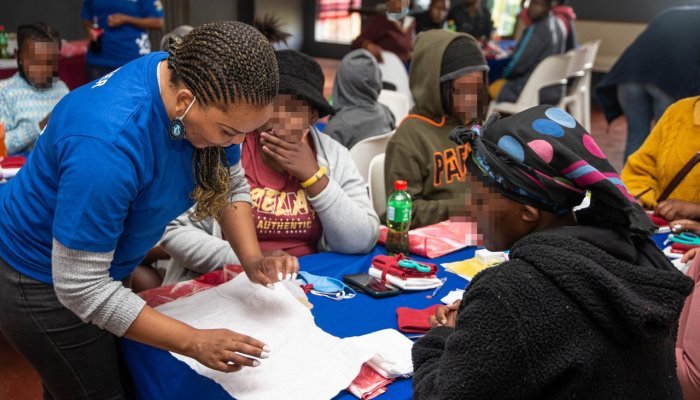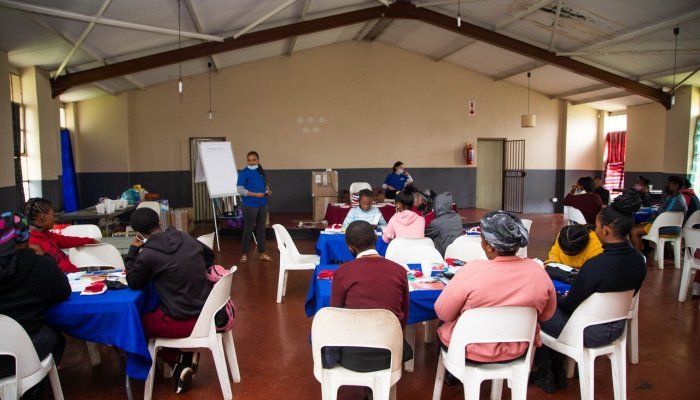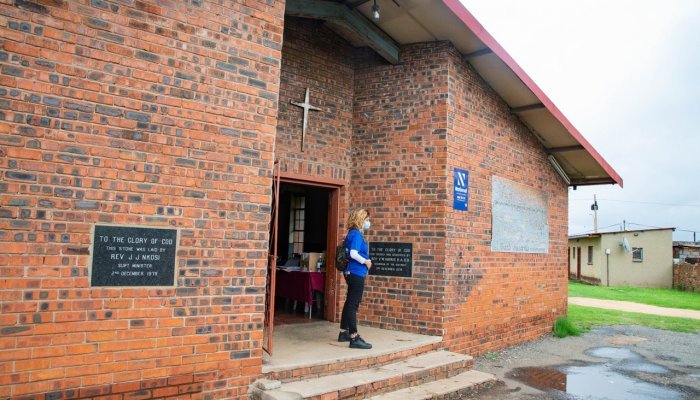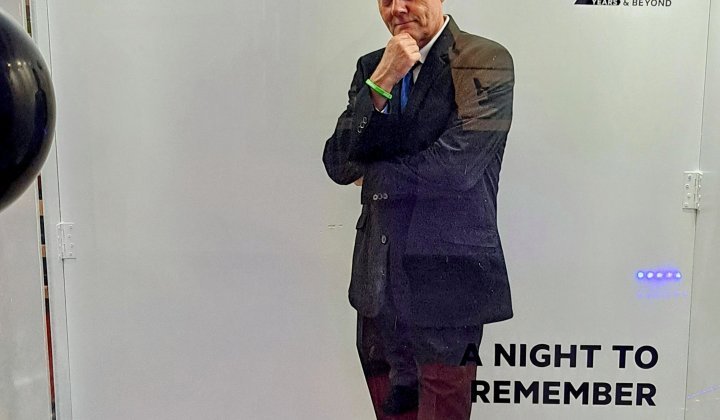In ways that range from subliminal to direct, many girls are taught from a young age that there are aspects of the female experience that must be hidden. From the covert purchasing of menstrual products to prescripts around how much of a woman's body may be exposed to double standards around the classification of promiscuity, many lived experiences of women are shrouded in secrecy and shame.
This suppression can create a sense of isolation instead of solidarity. It can also set a precedent that, just like women shouldn’t talk about premenstrual fatigue or food cravings, they shouldn’t tell anyone about the first time a partner slaps them. Nor the tenth time. Nor when they are regularly assaulted. And not even when they have been raped.
Into the light of day
Creating the space for women to talk freely about their lives and experiences is the primary objective of the We-Dare (Women's Equality: Digital Access and Rights to Expression) network, led by Nottingham Business School in the UK. As a key member of the network since its inception, the GIBS Centre for Business Ethics has been part of the collaboration of academic institutions and NGO partners since it was launched in 2020.
We-Dare designs opportunities for multi-dimensional conversations on topics such as socio-economics and gender-based violence to encourage women's dignity, end period poverty and foster skills empowerment.
From 22 November to 2 December 2021, We-Dare ran the first pilot programme. Sponsored by Hollard and Nando’s, it engaged with 100 women in the Wattville community of Benoni in Gauteng. By convening women around sewing workshops, the programme taught them how to sew their own reusable sanitary pads to overcome period poverty and create options to earn an income by selling the pads.
Reproductive health issues were also discussed. During these exchanges, experiences that many women dealt with in private were given a rare spotlight. One of the older participants shared how it was the first time she was learning about menopause. Another younger participant revealed that discussing how emotions are affected by the menstrual cycle gave her surprising insight that other women had had experiences similar to hers. She hadn’t known that other women also felt tearier, overwhelmed or irascible around the time of their period. Bringing these normal and widespread experiences into the broad light of day showed her that there wasn’t anything specifically wrong with her.
This uncovering of shared experiences can eliminate feelings of isolation, but it can also bolster female dignity. Through creating psychological support for the fact that the female experience deserves respect, women can then extend this sense of innate value to expectations around how their partners should treat them. By cultivating their internal significance and worth, women can require their partners to recognise this inherent dignity.
Veiled violence
South Africa’s gender-based violence rate is one of the highest globally. According to the World Health Organisation, femicide is five times higher in South Africa than the global average. In June 2020, while updating the nation on Covid-19 measures, President Cyril Ramaphosa referred to the numerous reports of abuse, rape and murder of women as ‘a second pandemic’. He mentioned that no fewer than 21 women and children had been murdered over the two preceding weeks. Mentioning some of them by name, he stated that gender-based violence should be considered just as serious as Covid-19.
The harrowing minutes during which he spoke the names of victims such as Tshegofatso Pule, Altecia Kortjie and Nwabisa Mgwandela were significant. However, for the women whose names are nationally known, many are not. Statistics found in police reports and demographic studies are incomplete because of the latent limitations of data collection and because victims often do not report abuse.
Reversing this widespread reluctance to report instances of violence was one of the goals of the pilot programme run by We-Dare. The two-day workshop included forums for women to talk about abuse. They were given the safe space to tell their stories, receive support and trauma counselling and access digital resources that could help combat gender-based violence.
In addition to education around gender bias, human rights and patriarchal culture, participants were also provided access to mobile data and knowledge on using digital resources such as WhatsApp for entrepreneurial skills development. There was also financial literacy provision through We-Dare’s corporate partner, Hollard.
Rays of hope and change
Having completed the pilot programme, We-Dare aims to rollout similar workshops in Johannesburg and the Western Cape. With the root causes of gender-based violence being multivarious, the measures to eradicate it similarly need to be numerous. NGOs and organisations such as the We-Dare network need the partnership of corporate South Africa.
Companies cannot exist purely to make a profit. Because they exist in communities, they must be connected to their communities. This can be through partnerships in which they give back to those in need and work to help create a more just and safe society. When the private sector is proactive about addressing issues plaguing humanity, everybody stands to benefit.
Combating gender-based violence will require many hands, brains and pockets on deck. It will require the participation of all of society. On paper, the metrics for measuring the We-Dare pilot programme show that it was successful. However, the credit for positive outcomes isn’t just to the GIBS Centre for Business Ethics and other partners. It belongs to the women who participated and then passed on what they had learnt. Feedback from the women who attended the pilot was positive, but the real measure of impact was confirmed by their initiative to extend the network even further by sharing what they had learnt with others. This meant that the original geographic scope of Wattville was expanded through a ripple effect to three or four other neighbouring communities.
Through government, business and civil society working in concert, this reach can spread nationwide and then across the African continent. It can lead to a global society where women use their voices to speak of what has happened to them and communicate who they are.
How corporates can play a part in combating gender-based violence
Equal pay for equal work
Introduced in 2014, the Employment Equity Act (EEA) mandates that where the same work is performed, an employer must afford the same salary to workers irrespective of race, gender, pregnancy or marital status. For women, this is significant because, according to the Inequality Trends in South Africa report, the largest contributor to overall income inequality came from the labour market at 74.2%. Published in 2019, the report revealed that female workers earned approximately 30% less, on average, than male workers. This disparity is consequential as the most recent South African Demographic and Health Survey found that the prevalence of physical and sexual violence decreased with the wealth quintile. Their research revealed that 37% of women in the lowest wealth quintile had experienced sexual or physical violence, while only 16% of women in the highest wealth quintile had dealt with such assaults. Therefore, paying women fairly could reduce their vulnerability to gender-based violence.
A corporate culture that reflects real life
While incidences of gender-based violence often take place outside of the office environment, it’s a matter that is pertinent to the workplace. Perpetrators and victims of violence are likely to be amongst the staff cohort, and therefore, the topic should be addressed in line with the values and workplace culture companies espouse. Private sector offerings could include workshops with trained gender-based violence counsellors and cultural awareness forums that equip men to prevent and eradicate gender-based violence. Legal education is another important way companies can contribute. Recently, the South African government introduced three new gender-based violence bills: the Criminal and Related Matters Bill, the Domestic Violence Amendment Bill, and the Criminal Law (Sexual Offences and Related Matters) Amendment Bill. Organisations can hold seminars to educate all staff on how these bills can help women.
Sponsorship that makes a difference
Originally, the first phase of the We-Dare initiative aimed to build a network of organisations and companies working in the area of gender-based violence. The second phase would then focus on researching various projects and programmes to glean insight into the causes and solutions for gender-based violence. However, because of Covid-19, the initial funders pulled out. By April 2021, it was evident that the second phase would no longer be viable without financial support. As a result, the We-Dare group had to figure out a new plan, which was to scale down and work in smaller communities rather than build a big network of partners. With hopes to run more programmes around South Africa and eventually in other countries such as Nigeria, We-Dare needs corporate sponsors. Each programme focuses on a specific community and offers tailor-made interventions to match the corporate brand and interests with the community's needs. To get involved as a We-Dare partner, contact Dr. Theresa Onaji-Benson by email: onajit@gibs.co.za.
The cost of gender-based violence
South Africa’s high rate of gender-based violence harms the economy. Here are numbers worth noting:
- R28.4 billion. The minimum approximate cost of gender-based violence in South Africa. A study by KPMG and Sonke Gender Justice found that in 2012-2013, gender-based violence cost between 0.9% and 1.3% of GDP.
- Half a million. This is the number of RDP houses that could have been built with money spent on gender-based violence related expenses.
- Three. There are three major types of costs that the KPMG study explored:
· Direct costs, such as the expenses of medical services for the victim.
· Indirect or intangible costs, such as pain, fear and suffering.
· Opportunity costs, or costs foregone when the circumstances of violence limit a victim’s options for employment.
- 72.8%. This is the percentage of gender-based violence victims employed in either the formal or informal sector. These victims are likely to have increased absenteeism from work and can be less productive when they are at work because of depression, PTSD and anxiety.
- R2 billion. This is what gender-based violence is estimated to cost the business sector.
Dr. Theresa Onaji-Benson
Dr. Theresa Onaji-Benson is faculty at GIBS. She is passionate about developing business in Africa, with interests in non-market strategies, ethics, partnerships and how firms sustainably influence their business environment. Her management work spans the Centres for Business Ethics and African Management and Markets.


